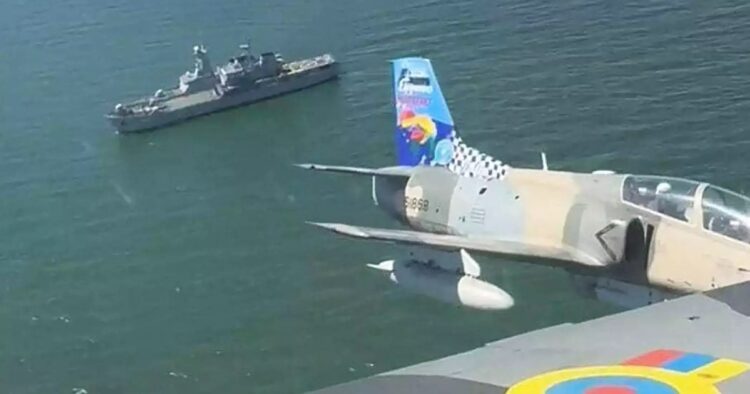In a recent development, a British warship has reached the shores of Guyana, escalating tensions in an ongoing territorial dispute with Venezuela. The situation has prompted Venezuela to initiate a major military exercise, responding to what they perceive as an “unacceptable” threat posed by the British presence.
The conflict revolves around the oil-rich Essequibo region, constituting about two-thirds of Guyana’s territory. Venezuela has long laid claim to this area, leading to a historical land dispute between the two nations. In response to the British warship’s arrival, President Nicolas Maduro of Venezuela ordered over 5,600 troops to conduct a “defensive” exercise near the Guyana border.
The move by Britain to send the warship, HMS Trent, is seen as a show of support for its former colony, Guyana. London has criticized Venezuela’s military exercises as “unjustified and should cease.” The warship’s deployment is part of a broader engagement strategy in the region during its Atlantic patrol task deployment.
Guyana’s foreign ministry confirmed the “uneventful” arrival of the British warship in its waters on Friday. The development has raised concerns regionally, with Brazil, which shares borders with both nations, calling for “restraint and a return to dialogue.” Brazil’s President Luiz Inacio Lula da Silva, acting as a peace broker, emphasized the importance of avoiding military demonstrations in support of either party.
Despite the tension, some experts view the British military response as “recklessness” that compels Venezuela to react defensively. Others, like Gary Best, a former chief of staff of the Guyana Defence Forces, see the British presence as a potential threat, especially in the current context of Venezuela challenging Guyana’s sovereignty.
The longstanding dispute over Essequibo has gained renewed attention with the discovery of massive offshore oil deposits in the region. Maduro’s government conducted a controversial referendum on December 3, claiming 95 percent voter support to declare Venezuela the rightful owner of Essequibo. Legal maneuvers and the issuance of oil extraction licenses by Venezuela have further escalated the situation.
Guyana, a former British and Dutch colony, asserts that the Essequibo frontiers were determined by an arbitration panel in 1899. However, Venezuela argues that the Essequibo River has historically served as a natural border, recognized as far back as 1777. Brazil has urged both parties to adhere to an agreement reached during a recent meeting between Maduro and Guyana’s President Irfaan Ali, where they pledged not to resort to force to settle the dispute.

















Comments